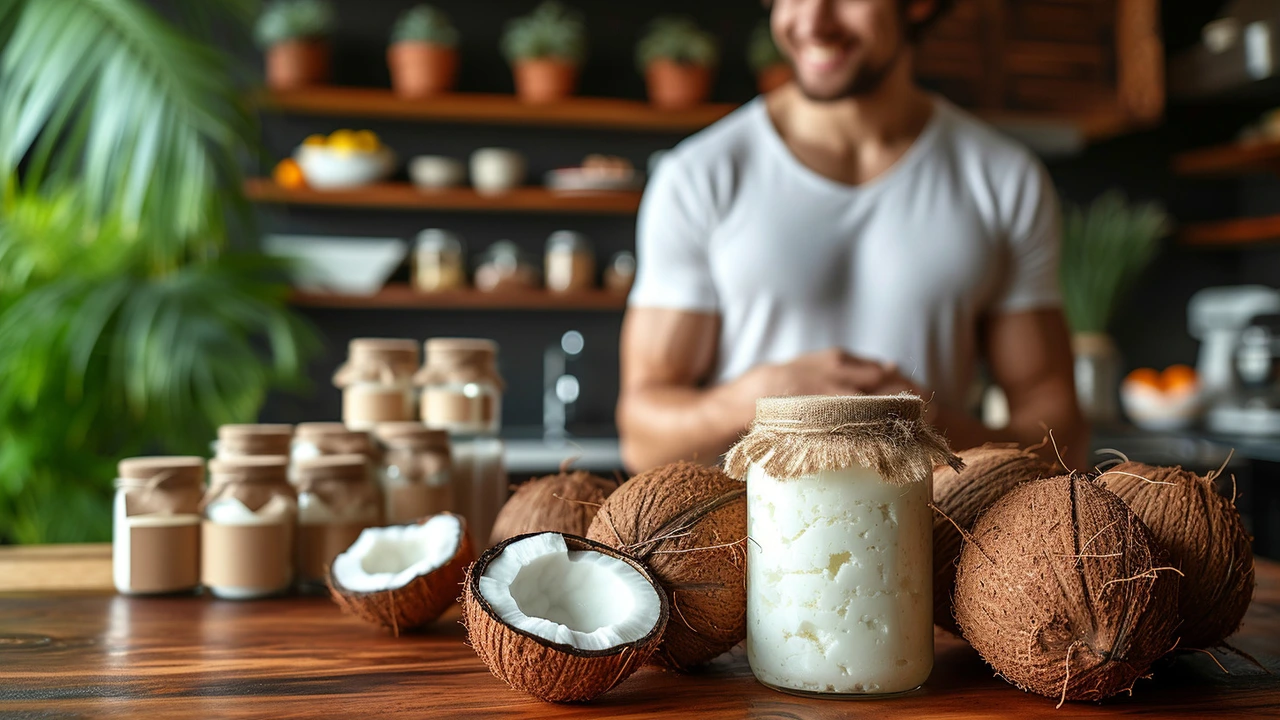Coconut Oil: Benefits, Uses, and How to Use It Safely
Coconut oil is everywhere: in kitchens, bathroom shelves, and social feeds. It has solid claims and some real drawbacks. This page gives clear, practical advice on where coconut oil helps, when to be careful, and easy ways to use it without overdoing it.
How to use coconut oil — cooking, skin, hair
Cooking: Pick refined coconut oil for higher-heat cooking and virgin (extra‑virgin) if you want that coconut flavor. One tablespoon has about 120 calories and roughly 12 g of saturated fat, so treat it like butter—use sparingly. Swap a tablespoon for butter in baking, add a little to curries, or use a spoonful in smoothies for texture. If heart health is a priority, olive or canola oil are better daily choices because they lower bad cholesterol more effectively.
Skin care: Virgin coconut oil works well as a quick moisturizer for dry elbows, hands, and flaky skin. Apply a small amount after a patch test on the forearm. Avoid routine use on oily or acne-prone faces — it can clog pores for some people. For a simple scrub, mix coconut oil with sugar and rub gently on rough spots, then rinse.
Hair: Want a fast fix for dry ends? Rub a teaspoon between your palms and smooth through hair ends, or warm a little and use as a 20–30 minute mask before washing. Don’t leave large amounts on the scalp if your hair gets greasy easily. A little goes a long way.
Practical tips, safety, and storage
Oil pulling: Swish 10–15 minutes with a tablespoon of oil to help reduce oral bacteria. Spit into the trash, not the sink, and remember this is an add-on, not a replacement for brushing and flossing.
Health notes: Coconut oil contains medium-chain fatty acids like lauric acid, which can raise HDL but also raise LDL compared with unsaturated oils. If you have high cholesterol or heart disease risk, talk with a clinician before making it a daily staple.
Allergies and selection: True coconut allergy is rare but possible. Look for labeled, cold‑pressed or extra‑virgin options if you want less processing. Smell and color are good clues—clean coconut scent and pale color mean it’s fresh.
Storage and small recipes: Coconut oil solidifies under about 75°F (24°C). Store it in a cool, dark place. Quick DIY: melt 1 tbsp coconut oil with 1 tsp beeswax for a simple lip balm. For a light body oil, mix a small amount with your favorite essential oil and test on skin first.
Bottom line: Coconut oil has useful topical and culinary roles, but it’s high in saturated fat. Use it intentionally, in small amounts, and pair it with a diet rich in unsaturated fats for better heart health.
Unlocking the Miraculous Health Benefits of Coconut Oil: A Comprehensive Guide
Dive into the world of coconut oil and its myriad of health benefits. This comprehensive guide explores how this superfood is not just for improving your skin and hair, but it also plays a crucial role in enhancing overall health. From aiding in weight management to boosting heart health and strengthening the immune system, coconut oil proves to be an all-rounder in contributing to a healthier lifestyle. Get ready to be informed on how to incorporate this wonder ingredient into your daily routine for optimum benefits.
View More





